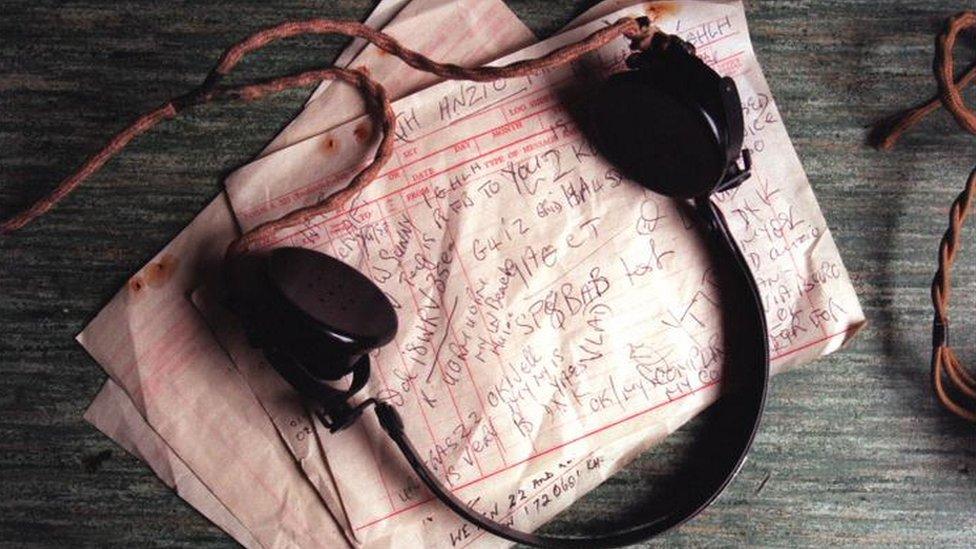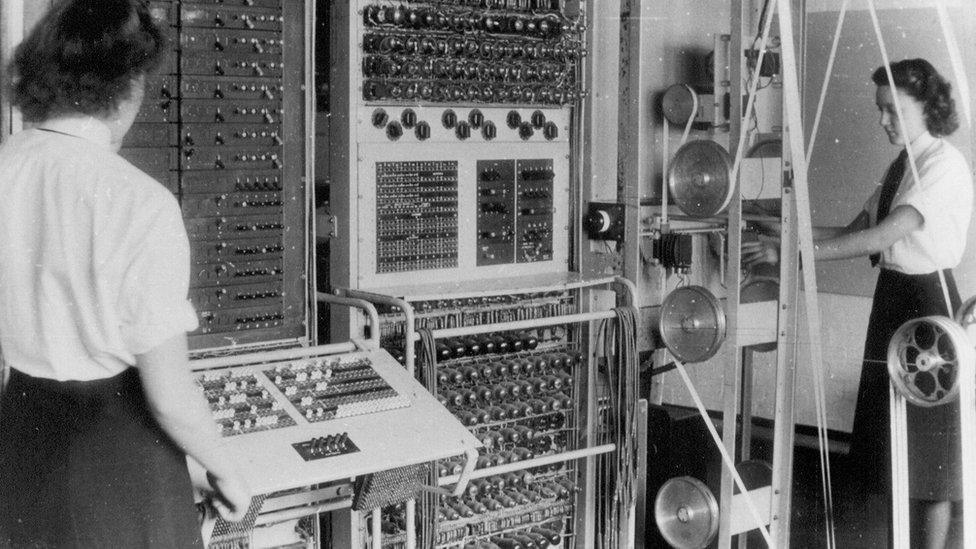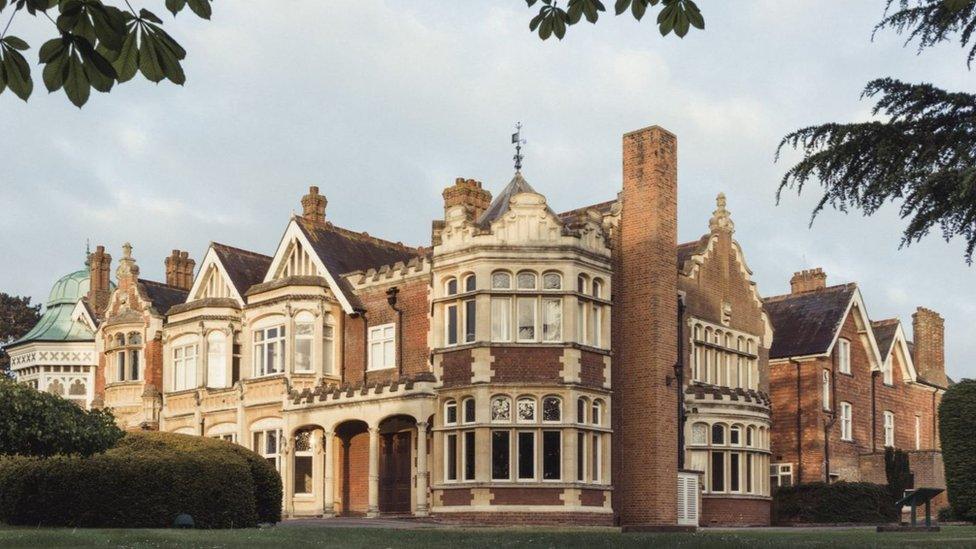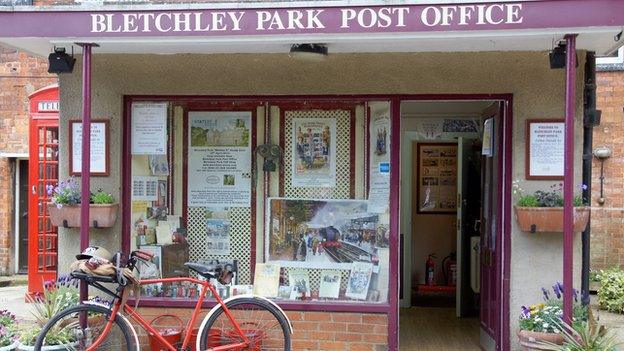Bletchley Park: Facebook donation gives museum a boost
- Published

A donation from Facebook has helped save some jobs at the Bletchley Park wartime coding centre in Milton Keynes.
During World War Two, Bletchley Park saw key advances in the development of computing, with Alan Turing and other leading scientists and mathematicians seeking faster ways of decoding German messages.
The social media giant is giving £1m to the museum at the site, which has been facing a financial crisis.
In August, the Bletchley Park Trust revealed that it was on course for a £2m deficit this year as a result of the coronavirus crisis.
A prolonged closure and then a limit on visitor numbers since the museum reopened, due to social-distancing regulations, had forced the Trust to make cuts.
That meant 35 of the 100 jobs at the site were likely to go, and many of the activities that have made visiting a rewarding experience would have to be curtailed.
Now the donation from Facebook means some of those jobs can be saved, external, and the cuts in exhibitions and education programmes will not have to be so severe.
The trust has also been told it will receive £447,000 from the government's Cultural Recovery Fund, designed to help museums and arts organisations deal with the impact of coronavirus.
Bletchley Park chief executive Iain Standen said the money would make a big difference as the museum tried to adapt to challenging circumstances.
With this significant support, we at Bletchley Park can weather the current crisis and survive into the future, keeping the doors open for future generations," he said.
Helen Andrews was 17 when she began working at Bletchley Park in World War Two
Steve Hatch, Facebook's boss in northern Europe, said: "The historic achievements of Alan Turing and the Bletchley team have benefited all of us greatly, including Facebook, and we're thrilled to help preserve this spiritual home of modern computing."

The Colossus, the world's first large-scale electronic computer, was built at Bletchley Park, switching on in 1944
A decade ago, Prof Sue Black mounted a successful social media campaign to save the site, which had fallen into disrepair.
She said she was delighted by the news of Facebook's donation.
"The work done at Bletchley Park by thousands of people shortened WW2 by two years, saving millions of lives," she said.
"We are so lucky to still have the place where the codebreakers worked available for anyone to visit."
The National Museum of Computing, which charts the development at Bletchley of machines such as the Bombe, external and Colossus computer, external, is also on the site – although it is not run by the Bletchley Park Trust.
It only reopened its doors to visitors last month.
Prof Black said both museums needed more help: "I hope other tech companies follow suit supporting Bletchley Park and the National Museum of Computing so that our children and grandchildren can learn about and appreciate our rich heritage."
- Published24 August 2020

- Published21 August 2020

- Published14 March 2015

